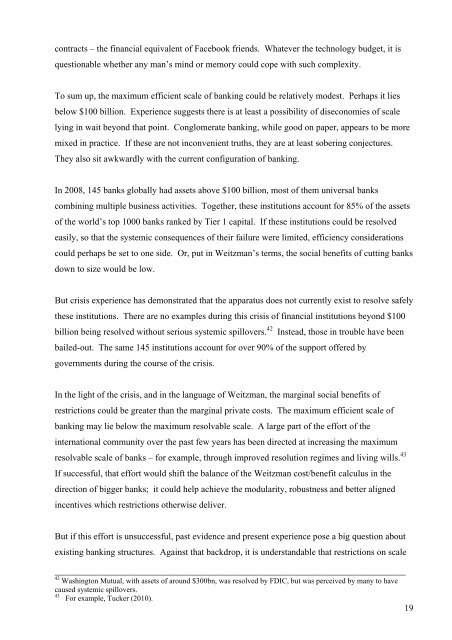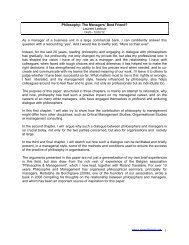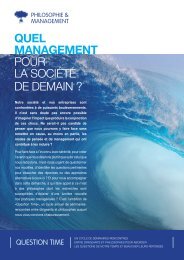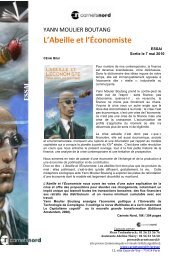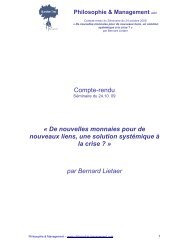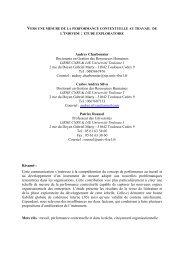The $100 billion question - Signal Lake Venture Fund
The $100 billion question - Signal Lake Venture Fund
The $100 billion question - Signal Lake Venture Fund
Create successful ePaper yourself
Turn your PDF publications into a flip-book with our unique Google optimized e-Paper software.
contracts – the financial equivalent of Facebook friends. Whatever the technology budget, it is<br />
<strong>question</strong>able whether any man’s mind or memory could cope with such complexity.<br />
To sum up, the maximum efficient scale of banking could be relatively modest. Perhaps it lies<br />
below <strong>$100</strong> <strong>billion</strong>. Experience suggests there is at least a possibility of diseconomies of scale<br />
lying in wait beyond that point. Conglomerate banking, while good on paper, appears to be more<br />
mixed in practice. If these are not inconvenient truths, they are at least sobering conjectures.<br />
<strong>The</strong>y also sit awkwardly with the current configuration of banking.<br />
In 2008, 145 banks globally had assets above <strong>$100</strong> <strong>billion</strong>, most of them universal banks<br />
combining multiple business activities. Together, these institutions account for 85% of the assets<br />
of the world’s top 1000 banks ranked by Tier 1 capital. If these institutions could be resolved<br />
easily, so that the systemic consequences of their failure were limited, efficiency considerations<br />
could perhaps be set to one side. Or, put in Weitzman’s terms, the social benefits of cutting banks<br />
down to size would be low.<br />
But crisis experience has demonstrated that the apparatus does not currently exist to resolve safely<br />
these institutions. <strong>The</strong>re are no examples during this crisis of financial institutions beyond <strong>$100</strong><br />
<strong>billion</strong> being resolved without serious systemic spillovers. 42 Instead, those in trouble have been<br />
bailed-out. <strong>The</strong> same 145 institutions account for over 90% of the support offered by<br />
governments during the course of the crisis.<br />
In the light of the crisis, and in the language of Weitzman, the marginal social benefits of<br />
restrictions could be greater than the marginal private costs. <strong>The</strong> maximum efficient scale of<br />
banking may lie below the maximum resolvable scale. A large part of the effort of the<br />
international community over the past few years has been directed at increasing the maximum<br />
resolvable scale of banks – for example, through improved resolution regimes and living wills. 43<br />
If successful, that effort would shift the balance of the Weitzman cost/benefit calculus in the<br />
direction of bigger banks; it could help achieve the modularity, robustness and better aligned<br />
incentives which restrictions otherwise deliver.<br />
But if this effort is unsuccessful, past evidence and present experience pose a big <strong>question</strong> about<br />
existing banking structures. Against that backdrop, it is understandable that restrictions on scale<br />
_____________________________________________________________________________<br />
42 Washington Mutual, with assets of around $300bn, was resolved by FDIC, but was perceived by many to have<br />
caused systemic spillovers.<br />
43<br />
For example, Tucker (2010).<br />
19


